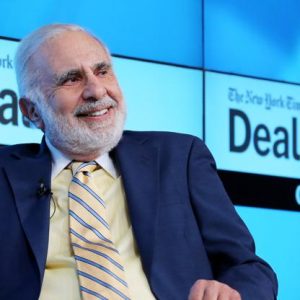
Carl Icahn
- Net worth $4 billion
- Birthday February 16, 1936
- Status Married
- Country United States
- Ethnicity Ashkenazi Jewish
- Source(-s) of wealth Entrepreneur, Investor
How much is Carl Icahn Worth? Carl Icahn Net Worth in 2025
Carl Icahn Net Worth: How rich is Carl Icahn? & How much money is Carl Icahn worth? Time to find out!
Carl Icahn is an American investor and business magnate, and his current net worth is $16.2 billion.
Born in Far Rockaway, in Queens’ section of New York City, he attended Far Rockaway High School.
Growing up in a Jewish family, with a cantor, and later a substitute teacher father, and his mother, a schoolteacher, he didn’t take school seriously.
After graduating from Princeton University with a BA degree in philosophy, he attended New York University School of Medicine, but didn’t graduate. Instead, he dropped out after two years to join the army reserves.
How did Carl Icahn get famous?
In 1961, he started his career on Wall Street as a stockbroker, and later he left to establish Icahn & Co., a securities company. The company focused on risk arbitrage and options trading.
Later in his career, he has started to take controlling positions in individual companies.
After the he had a hostile takeover of Trans World Airlines in 1985, he developed a reputation as a corporate raider.
How does Carl Icahn make money?
Then he sold TWA’s assets to repay the money he borrowed to buy the company, a move described as asset stripping. In 1988, he made TWA private, earning a personal profit of almost $500 million. It left TWA with a debt of $540 million.
Few years later, he sold TWA’s London routes to American Airlines for $445 million. Around that time, he started lowestfares.com to sell TWA tickets.
Icahn has shaken up corporate America for years by taking stakes in publicly-traded companies and agitating for change.
The founder of Icahn Enterprises, formerly known as American Real Estate Partners, is also Chairman of Federal-Mogul, an American developer.
He is currently advising the Trump Admiration on issues involving regulatory overhaul, helping him to select the heads of key regulatory agencies.
His investment fund dropped by 20.3% in 2016, making it its third-straight year of losses.
It fell by 18% in 2015 and his positions in energy and commodities companies, hit by weak commodities prices and his hedges against the stock market’s rise have hurt his performance.